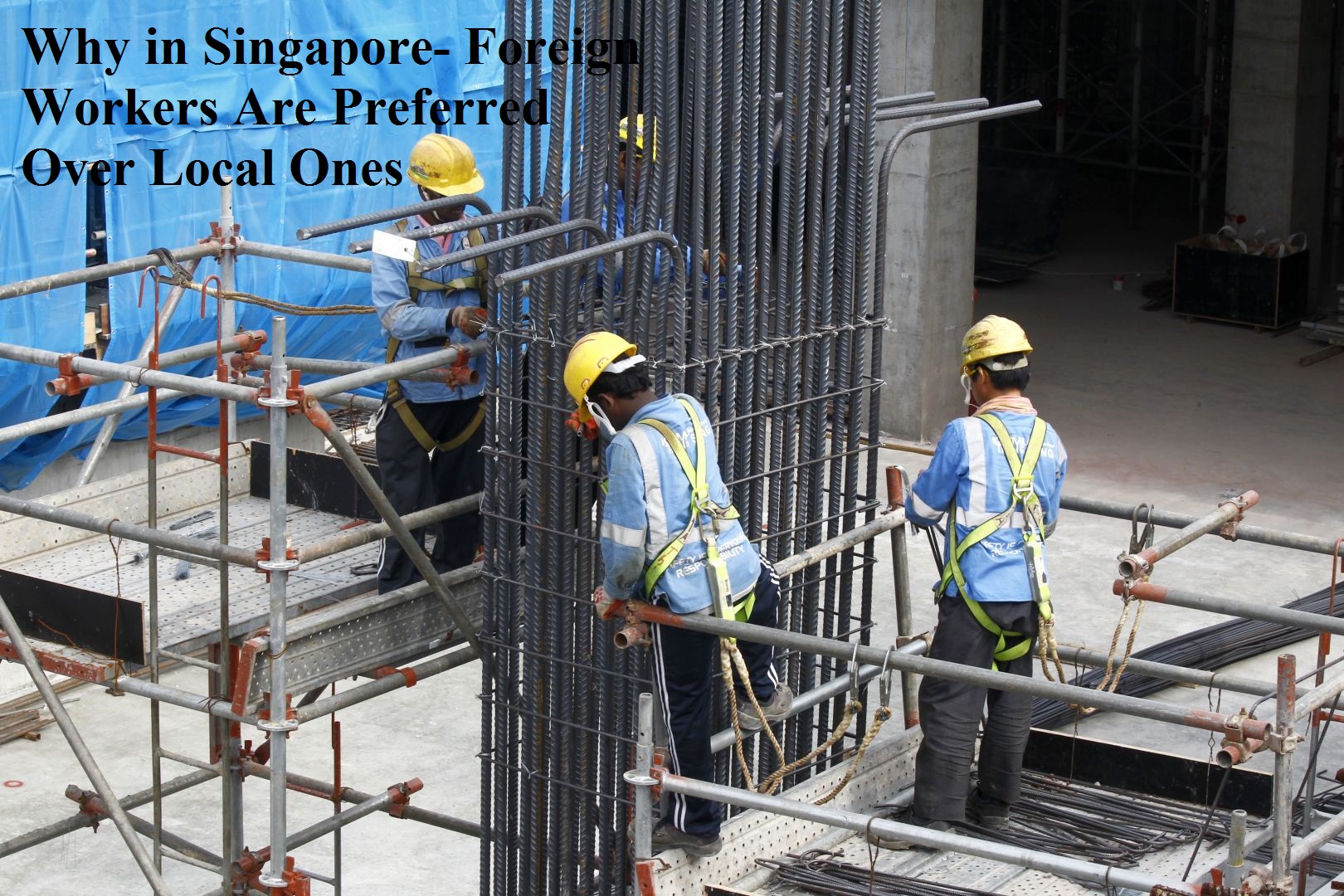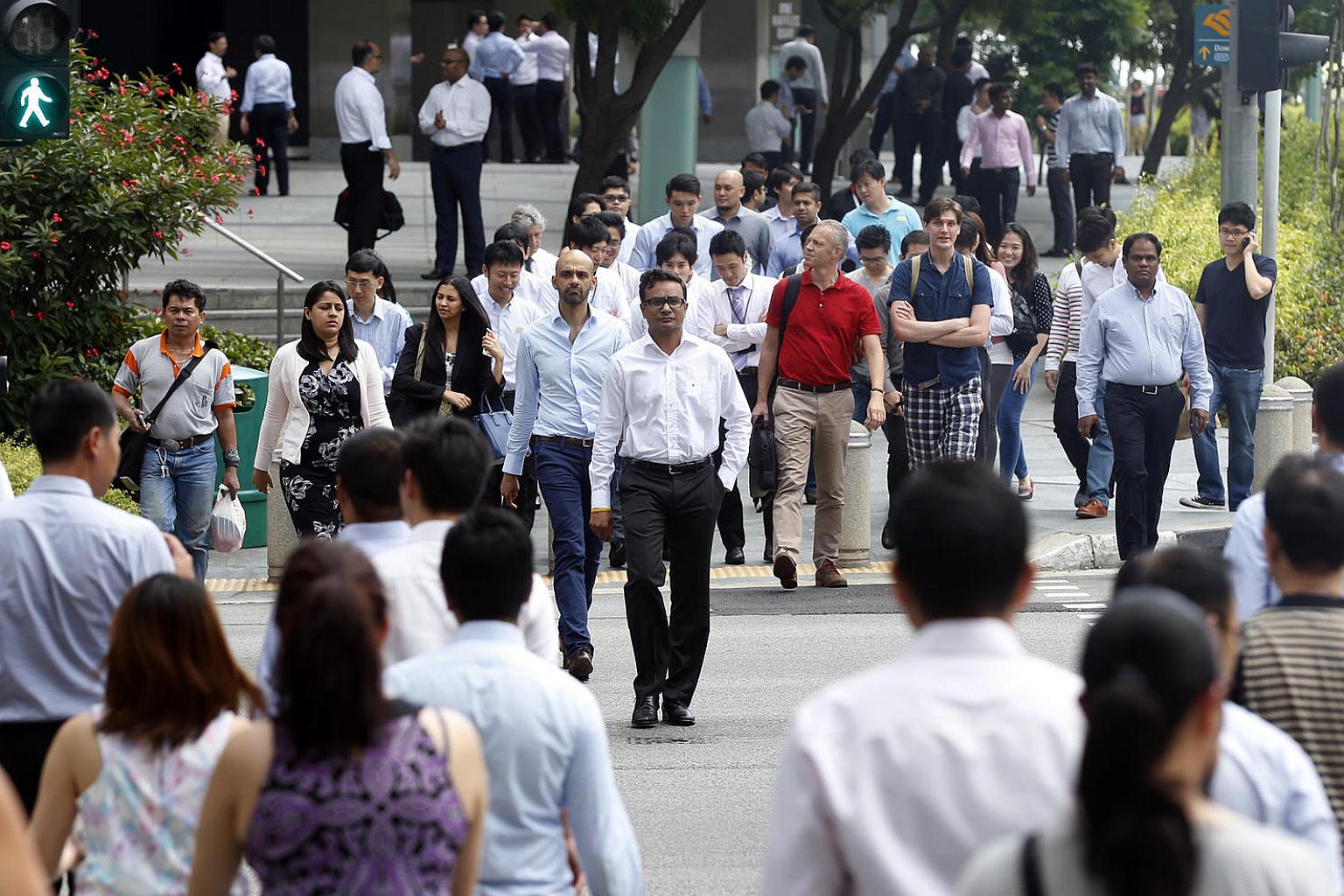Why in Singapore- Foreign Workers Are Preferred Over Local Ones

Why in Singapore- Foreign Workers Are Preferred Over Local Ones
Just before the financial crisis of 2007, the Singapore government in order to fill the job vacancies allowed the employers to hire foreign employees and ease the process of hiring. After the financial crises, the employers were in great position because they have hired cheap labor as a foreign worker and the employment rate at the time of crisis is full.
Until then nobody has an actual idea of how many foreign workers have been working in Singapore but now every employer is want to replace locals with the foreign workers. Locals who are being paid more than foreign workers are the main targets of the replacement which to have repercussions but they are well ignored.
Stay tuned to know Why in Singapore- Foreign Workers Are Preferred Over Local Ones-

Cost of hiring foreign employees in Singapore is much lower than that of local employees-
For any business and an employer, the cost is the major factor. Every businessman will hire cheap labor as compared to the one which will cost him heaven. The foreign worker receives only the basic salary plus tax. Tax amount varies with the type of industry you are working in. Foreign workers are not provided with CPF. So that’s why when government ease hiring the foreign employees it was a win-win situation for the employers and every employer is keeping eye on replacing the locals with foreigners.
Moreover, foreign workers on an S-Pass work permit comes to Singapore with the idea of settling permanently and they have that in mind that the employer will help them get the permanent residency. Making them more serious at their work.
Foreigners are Better Workers than the local workers in Singapore-
There is no doubt on how Singaporean workers are articulate and sharp but apart from the high salaries, Singaporean workers change their jobs easily and frequently. For an employer point of view, they need stability with the work which is lacking in the local workers.
Moreover, the Singaporean workers are very much straightforward and sometimes involve in the argument with the employers which is not at all accepted. Most of the Singaporean local workers refused to work in some area of work that will allow foreigners to take their place in that areas. Every employer can hire foreign workers on the basis of a quota system but some industries like marine or construction have a high quota as Singaporean workers don’t work in these sectors.
Bilateral ties with countries like China and India- proving its allegiance
It is like a win-win situation for each country. For Singaporean employers hiring the employees having work experience back in their home country and have influential ties is preferred by the employers who are seeking to expand its business overseas. The same is for the businessman in these countries who can expand in Singapore and they can also hire their people for it. This bilateral advantage helps Singapore to improve their status in the organization like ASEAN.
Companies with foreigners seem hip
Hiring foreign workers is more in the restaurant industry to attract tourism. That’s why you will see all foreigners working in the restaurants rather than local workers. Foreign workers attract more tourism as they know the language and food preferences.
There is a time when foreign manpower is only considered to do menial work but now they are injecting in every possible industry.
Political Agenda behind Singapore hiring foreign workers
Making immigration as the main agenda for the election government want to grab maximum seats. Moreover, the point of hiring the foreigners is to complete the population chart in which every 3rd person is a foreign-born.
Resigning of the local workers and shifting to the other countries make the government realize that economic prowess is not the only matter, they have to take a serious step in favor of their citizen. Decreasing in the employment rate among the local worker’s Singaporean government have made the strict rules on the entry of the foreign workers and making space for the local workers.

 How Frequently Should Passwords Be Updated? A Comprehensive Guide
How Frequently Should Passwords Be Updated? A Comprehensive Guide  What is Maximum age to get Student Visa for Canada
What is Maximum age to get Student Visa for Canada  Here is Everything You Need to Know about the Canadian Tax Return System!
Here is Everything You Need to Know about the Canadian Tax Return System!  Everything You Need to Know about Australia Tourist Visa for Indians
Everything You Need to Know about Australia Tourist Visa for Indians  Process for Immigrating to Finland in a Nutshell!
Process for Immigrating to Finland in a Nutshell!  Everything You Need to Know About Albania Visa!
Everything You Need to Know About Albania Visa!  What actions by Trump Government are in store for illegal immigrants in US? What are Challenges to deport illegal immigrants from US?
What actions by Trump Government are in store for illegal immigrants in US? What are Challenges to deport illegal immigrants from US?  Recent Changes to Canada’s Work Permit Rules and its impact on Immigrants from India
Recent Changes to Canada’s Work Permit Rules and its impact on Immigrants from India  Applications for UK Immigration witness major decline as the Immigration Laws undergo significant changes
Applications for UK Immigration witness major decline as the Immigration Laws undergo significant changes  What are changes in Canada Start up Visa Program and Self-Employed Persons Program. How would it affect the potential immigrants to Canada?
What are changes in Canada Start up Visa Program and Self-Employed Persons Program. How would it affect the potential immigrants to Canada?